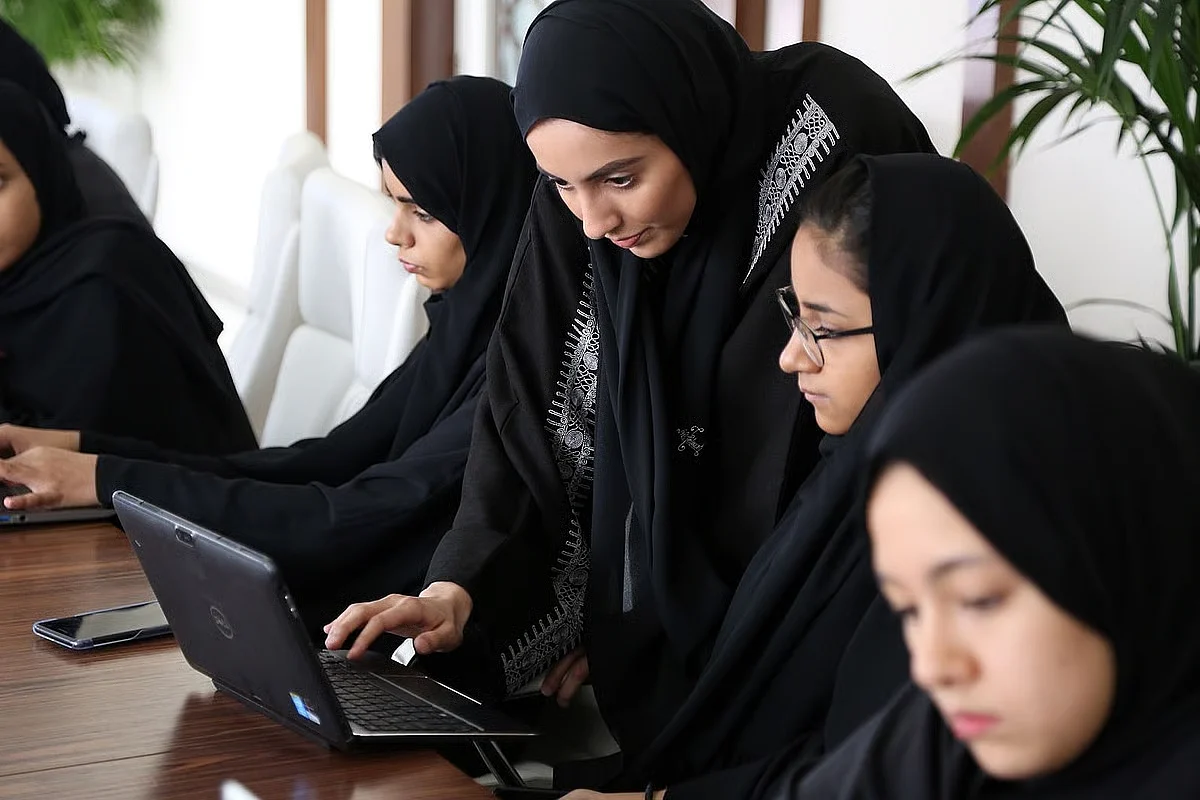
UAE: 61% Of Graduates In STEM Fields Are Emirati Women
In the UAE, 61 per cent of graduates in STEM fields are Emirati women. This significant achievement, according to Unesco, substantially surpasses the Arab world average - underscoring the nation's unwavering commitment to empowering women.
Amal Al Teneiji, Strategic Planning & Excellence Director at Emirati Talent Competitiveness Council (ETCC), said,“Our leadership has consistently spearheaded strategic national initiatives that actively promote the participation of Emirati women across diverse sectors - from technology and AI to healthcare and tourism.”
Recommended For YouThe strong presence of Emirati women in research, medicine, and other related fields can be attributed to a number of initiatives put in place by the UAE Government.
Stay up to date with the latest news. Follow KT on WhatsApp Channels.
The National Policy for Empowerment of Emirati Women for 2023-2031 aims to facilitate equitable and comprehensive participation of women in all sectors and enhance their quality of life.
The UAE Gender Balance Council plays a pivotal role in this advancement, ensuring Emirati women are actively encouraged to contribute to nation-building. Legislation ensuring equal pay and targeted efforts to place Emiratis, particularly women, in high-growth and critical roles have made the private sector increasingly attractive for the next generation of female talent.
The Emirati Talent Competitiveness Council, through its Nafis programmes, continues to drive this momentum, ensuring Emirati women are not only represented but empowered to lead.
Al Teneiji emphasized the broader impact,“Their growing impact across industries is not just a national success story; it's a testament to what focused policy and real opportunity can achieve.”
SDG 5 pledge: Gender balance in private sector
The UAE Gender Balance Council's commitment extends to the private sector through the Sustainable Development Goal (SDG) 5 Pledge, launched in 2020. This landmark initiative provides a framework for private sector entities to advance gender balance, aligning with the United Nations' fifth Sustainable Development Goal. The pledge aims to increase women's representation in senior and mid-level management roles to 30 per cent by 2025 for the first cohort, and 2028 for the second.
With 71 signatories from leading private sector companies, the pledge has yielded tangible results by elevating corporate awareness of the strategic value of gender balance, encouraging inclusive workplace policies, and embedding diversity and inclusion into organizational culture Council supports these companies with specialized workshops, targeted training, professional development programmes, and networking platforms.
Collaboration between the UAE Gender Balance Council and Nafis further amplifies the Pledge's impact by aligning it with national programmes supporting Emirati talent. This partnership provides access to a comprehensive database of female talent, facilitates advanced training, and accelerates the achievement of leadership roles for Emirati women.
The effectiveness of the SDG 5 Pledge is measured using key performance indicators such as growth and retention of women in leadership positions, improved hiring and promotion rates for women, adoption of flexible work policies, and integration of gender balance into corporate HR strategies.
The SDG 5 Pledge platform enables signatories to update their data annually, providing real-time insights into progress and identifying organizations with outstanding results for recognition through the upcoming SDG 5 Pledge Awards.
Nafis programme impact: Empowering women across sectorsRecent data from Nafis highlights the significant impact of the programme on empowering women in the UAE job market. In 2025, the top sectors for female Nafis beneficiaries include construction (20.7 per cent), wholesale and retail (17.3 per cent), and administrative service activities (13.1 per cent), demonstrating the diverse opportunities available.
Furthermore, the programme has consistently shown a higher proportion of female beneficiaries compared to male beneficiaries, with female representation increasing from 69.7 per cent in 2022 to 73.1 per cent in 2025, underscoring the programme's effectiveness in fostering women's participation in the workforce.

Legal Disclaimer:
MENAFN provides the
information “as is” without warranty of any kind. We do not accept
any responsibility or liability for the accuracy, content, images,
videos, licenses, completeness, legality, or reliability of the information
contained in this article. If you have any complaints or copyright
issues related to this article, kindly contact the provider above.
















Comments
No comment